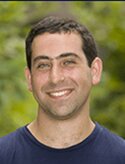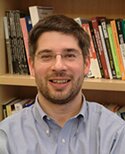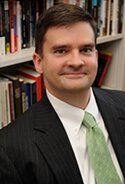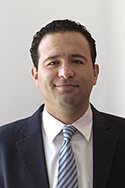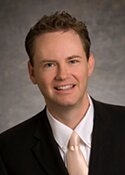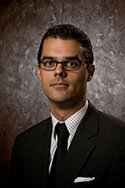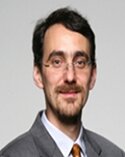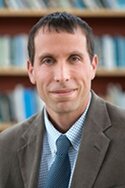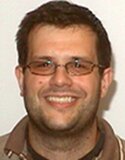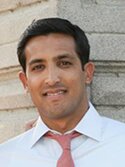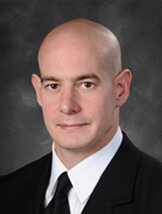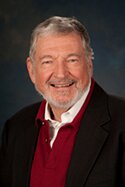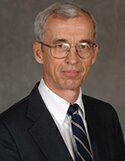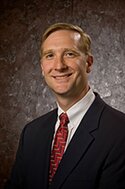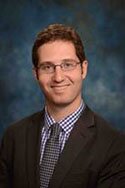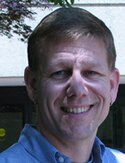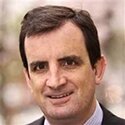Dangerous World? Threat Perception and U.S. National Security
Featuring
Policy Director, Defense Priorities

Professor of Civil Engineering, University of Newcastle in Australia
Professor, Department of Political Science, Tulane University
Last year, Chairman of the Joint Chiefs of Staff Gen. Martin Dempsey contended that "we are living in the most dangerous time in my lifetime, right now." This year, he was more assertive, stating that the world is "more dangerous than it has ever been."
Is this accurate? At this conference, experts on international security will assess, and put in context, the supposed dangers to American security. Speakers will examine the most frequently referenced threats, including wars between nations and civil wars within nations. Panelists will also discuss the impact of rising nations, weapons proliferation, general unrest, transnational crime, and state failures, as well as technological developments, climate change, and the requirement to maintain a stable global economic system.
| 8:30 – 9:00 a.m. | Registration |
| 9:00 – 9:15 a.m. |
Welcoming Remarks Christopher Preble, Vice President for Defense and Foreign Policy Studies, Cato Institute |
| 9:15 – 10:45 a.m. |
Panel 1: Still a Tragedy? Threats from Nation-States
Historically, states have posed the greatest threats to international security, especially through wars that have caused massive death and destruction. Is that still the case? What sort of security threat does China's growing power pose to the United States? Another fear is that of nuclear weapons "cascades," or a "tipping point" beyond which a large number of states will acquire nuclear weapons. Is such a cascade likely? What danger would such a scenario pose to Americans? And finally, American alliances are justified on the basis of fears that current U.S. allies would engage in security competition or war with each other or with third parties in the absence of U.S. security guarantees. How likely would this result be, and what sort of threat would it pose to Americans? Moderator: Justin Logan, Director of Foreign Policy Studies, Cato Institute Lyle Goldstein, Associate Professor, China Maritime Studies Institute, U.S. Naval War College |
| 10:45 – 11:00 a.m. | Break |
| 11:00 a.m. – 12:30 p.m. |
Panel 2: Rebels, Terrorists, Mobs, and Anarchy: Sub-state Threats
With a lack of credible state rivals since the end of the Cold War, security studies scholars and policy analysts in the United States have increasingly turned their attention to sub-state threats: insurgents, terrorists, criminal networks, and increasingly civil war, or the absence of authority itself. What have we learned of late about the sort of danger these troubles pose to the United States itself? To what extent should we fix, manage, or live with the lack of authority that lets these problems grow? Is disorder abroad a growing problem? Moderator: Benjamin Friedman, Research Fellow in Defense and Homeland Security Studies, Cato Institute Paul Pillar, Visiting Professor, Center for Security Studies, Georgetown University |
| 12:30 – 1:30 p.m. | Lunch |
| 1:30 – 3:00 p.m. |
Panel 3: What Else Are We Afraid Of? Pondering the Multiplicity of Potential Threats
Beyond traditional threats to security such as wars and terrorism, fears have arisen in response to supposed new, but less visible, dangers. These include cybersecurity and cyberwar, potential problems derived from climate change, and issues of uncertainty, economic stagnation, and complexity. How do we assess these purported threats? Should we fear general instability and anarchy, which are persistent features of the international system? Can we do anything about them? Moderator: John Mueller, Senior Fellow, Cato Institute Mark Stewart, Director, Centre for Infrastructure Performance and Reliability, Professor of Civil Engineering, University of Newcastle |
| 3:00 – 3:15 p.m. | Break |
| 3:15 – 4:45 p.m. |
Panel 4: Commanding the Commons and Protecting Prosperity. Can We? Must We?
To what extent does disorder threaten the global economic system, and must the United States prevent piracy, international crime, and general lawlessness in order to maintain our relative prosperity? Does uncertain access to sources of energy pose a threat to U.S. and global prosperity? The leading advocates of U.S. global primacy contend that trade has expanded because the United States provides a global public good of security within the commons, and that such trade would slow or contract if the United States were to reduce its global policing function. Does global order depend upon a single power enforcing the rules of the game, and is the United States capable of playing this role indefinitely? Moderator: Christopher Preble, Vice President for Foreign and Defense Policy Studies, Cato Institute Eugene Gholz, Associate Professor of Political Science, LBJ School, University of Texas at Austin |
| 4:45 – 5:00 p.m. |
Closing Remarks Christopher Preble, Vice President for Defense and Foreign Policy Studies, Cato Institute |
| 5:00 – 6:00 p.m. | Reception |
Max Abrahms is an assistant professor of public policy in the Department of Political Science at Northeastern University. His work on asymmetric conflict focuses on the study of civil war, insurgency, nonviolent protest, and terrorism, and his work in international relations theory focuses on the concepts of coercion, perception, misperception, rationality, and signaling in the international system. Abrahms is an active term member at the Council on Foreign Relations. He holds a PhD in political science from the University of California–Los Angeles, an MPhil in international relations from Oxford University, and a BA in political science and history from the University of Pennsylvania.
Peter Andreas is a professor of international studies and associate director of the Watson Institute for International Studies at Brown University. Andreas has been an academy scholar at Harvard University, a research fellow at the Brookings Institution, and an SSRC-MacArthur Foundation Fellow on international peace and security. Andreas has authored, co-authored, or co-edited nine books, including, most recently Smuggler Nation: How Illicit Trade Made America. He holds an MA and PhD in government from Cornell University and a BA in political science from Swarthmore College.
Stephen G. Brooks is an associate professor of government at Dartmouth, and has previously held fellowships at Harvard and Princeton. He is the author of Producing Security: Multinational Corporations, Globalization, and the Changing Calculus of Conflict and World out of Balance: International Relations and the Challenge of American Primacy. He has published articles in International Security, International Organization, Journal of Conflict Resolution, Perspectives on Politics, Security Studies, and Foreign Affairs. He received a PhD in political science from Yale University in 2001 and a BA in economics and politics from the University of California–Santa Cruz.
Michael Cohen is a fellow at the Century Foundation and a columnist for The Guardian newspaper. Formerly he was a senior fellow at the New America Foundation and the American Security Project. He also served in the U.S. Department of State as chief speechwriter for U.S. Representative to the United Nations Bill Richardson and Undersecretary of State Stuart Eizenstat. He has worked at the Carnegie Endowment for International Peace and was chief speechwriter for Senator Chris Dodd (D-CT). Michael holds a BA in international relations from American University and an MA from Columbia University where he is also an adjunct lecturer in the School of International and Public Affairs.
 Daniel W. Drezner is professor of international politics at the Fletcher School of Law and Diplomacy at Tufts University, a nonresident senior fellow at the Brookings Institution, and a contributing editor at Foreign Policy. Drezner has served as an international economist at the U.S. Treasury Department's Office of International Banking and Securities Markets. He was a nonresident fellow with the German Marshall Fund of the United States, a Council on Foreign Relations International Affairs Fellow, and a post-doctoral fellow at Harvard University's Olin Institute for Strategic Studies, and is the author of Theories of International Politics and Zombies He holds an MA in economics and a PhD in political science from Stanford University, and a BA in political economy from Williams College.
Daniel W. Drezner is professor of international politics at the Fletcher School of Law and Diplomacy at Tufts University, a nonresident senior fellow at the Brookings Institution, and a contributing editor at Foreign Policy. Drezner has served as an international economist at the U.S. Treasury Department's Office of International Banking and Securities Markets. He was a nonresident fellow with the German Marshall Fund of the United States, a Council on Foreign Relations International Affairs Fellow, and a post-doctoral fellow at Harvard University's Olin Institute for Strategic Studies, and is the author of Theories of International Politics and Zombies He holds an MA in economics and a PhD in political science from Stanford University, and a BA in political economy from Williams College.
Christopher J. Fettweis is an associate professor of political science at Tulane University, where he teaches classes on international relations, U.S. foreign policy, and security. He is the author of three books, including The Pathologies of Power: Fear, Honor, Glory and Hubris in U.S. Foreign Policy and Dangerous Times? The International Politics of Great Power Peace, and a number of articles that have appeared in Political Science Quarterly, the Los Angeles Times, and other journals and magazines. Fettweis holds a PhD in international relations from the University of Maryland and a BA in history from the University of Notre Dame.
Benjamin H. Friedman is a research fellow in defense and homeland security studies at the Cato Institute. His areas of expertise include counterterrorism, homeland security, and defense politics. He is the author of dozens of op-eds and journal articles and co-editor of two books, including Terrorizing Ourselves: Why U.S. Counterterrorism Policy Is Failing and How to Fix It, published in 2010. He is a graduate of Dartmouth College and a PhD candidate in political science and an affiliate of the Security Studies Program at MIT.
Francis J. Gavin is the director of the Robert S. Strauss Center for International Security and Law and the first Tom Slick Professor of International Affairs at Lyndon B. Johnson School of Public Affairs at the University of Texas at Austin, and the author of Nuclear Statecraft: History and Strategy in America's Atomic Age. His teaching and research interests focus on U.S. foreign policy, global governance, national security affairs, nuclear strategy and arms control, presidential policymaking, and the history of international monetary relations. Gavin received a PhD and MA in diplomatic history from the University of Pennsylvania, a master of studies in modern European history from Oxford, and a BA in political science from the University of Chicago.
Justin Logan is the director of foreign policy studies at the Cato Institute. He is an expert on U.S. grand strategy, international relations theory, and American foreign policy. His current research focuses on the shifting balance of power in Asia — specifically with regard to China — and the formation of U.S. grand strategy under unipolarity. He holds an MA in international relations from the University of Chicago and a BA in international relations from American University.
Eugene Gholz is an associate professor at the Lyndon B. Johnson School of Public Affairs at the University of Texas at Austin. From 2010–2012, Gholz was a senior adviser to the deputy assistant secretary of defense for manufacturing and industrial base policy. He previously taught at the University of Kentucky's Patterson School of Diplomacy and International Commerce. Gholz works on innovation, defense management, and U.S. foreign policy. His recent scholarship focuses on energy security, economic sanctions, and the aircraft industry. He received his PhD from MIT.
Lyle J. Goldstein is an associate professor in the China Maritime Studies Institute at the U.S. Naval War College. He is also a visiting fellow of the Watson Institute of International Studies at Brown University. His research focuses on various quandaries in U.S.-China relations, including the imperative to enhance maritime cooperation. Goldstein earned a PhD from Princeton University in 2001 and holds an MA from Johns Hopkins School of Advanced International Studies.
Brendan Rittenhouse Green is a visiting professor at the Lyndon B. Johnson School of Public Affairs at the University of Texas at Austin. He writes on international relations theory, national security policy, and military behavior. Green holds a PhD in political science from MIT and an AB in political science from the University of Chicago.
Jennifer Keister is a visiting research fellow with the Cato Institute with expertise in insurgency, terrorism, and the southern Philippines. She has also worked on development challenges in conflict zones. Her current research focuses on the structure of authority and governance in so-called "ungoverned spaces." She has held positions in both the International Security and Intrastate Conflict Programs at the Belfer Center for Science and International Affairs at Harvard University's Kennedy School of Government, as well as at the United States Institute of Peace, and the University of California's Institute on Global Conflict and Cooperation. Keister holds a PhD and an MA in political science from the University of California–San Diego, and a BA in government from the College of William and Mary.
Sameer Lalwani is a PhD candidate in political science at MIT and an affiliate of MIT's Security Studies Program. Currently he is a pre-doctoral fellow at George Washington University's Institute of Security and Conflict Studies. His dissertation research focuses on why states choose particular military strategies to combat rebellion, primarily in South Asia. Lalwani's broader research interests include U.S. grand strategy, civil conflict, ethnic politics, civil-military relations, and national security decision making. He holds a BA in political science from the University of California–Berkeley.
Martin Libicki is a senior management scientist at the RAND Corporation. His research focuses on the impacts of information technology on domestic and national security. This work is documented in books, including Conquest in Cyberspace: National Security and Information Warfare and Information Technology Standards: Quest for the Common Byte — as well as in numerous monographs, notably How Insurgencies End, and How Terrorist Groups End: Lessons for Countering al Qa'ida. Prior to joining RAND, Libicki spent 12 years at the National Defense University, 3 years on the Navy staff as program sponsor for industrial preparedness, and 3 years as a policy analyst for the U.S. General Accounting Office's Energy and Minerals Division. Libicki received his PhD in city and regional planning from the University of California–Berkeley.
Austin Long is an assistant professor at the School of International and Public Affairs and a member of the Arnold A. Saltzman Institute of War and Peace Studies at Columbia University. He previously worked as an associate political scientist at the RAND Corporation. His research interests include low-intensity conflict, intelligence, military operations, nuclear forces, military innovation, and the political economy of national security. Long received a PhD in political science from MIT and a BS from the Sam Nunn School of International Affairs at the Georgia Institute of Technology.
John Mueller is a senior fellow at the Cato Institute as well as senior research scientist at the Mershon Center and is a member of the political science department at Ohio State University. He is a leading expert on terrorism and particularly on the reactions (or overreactions) it often inspires. Among his books are Overblown, Atomic Obsession, War and Ideas, and (with Mark Stewart) Terror, Security, and Money. He is a member of the American Academy of Arts and Sciences, has been a John Simon Guggenheim Fellow, and has received grants from the National Science Foundation and the National Endowment for the Humanities. He has been a visiting fellow at the Brookings Institution, the Hoover Institution at Stanford University, and the Norwegian Nobel Institute in Olso. Mueller holds both a PhD and an MA in political science from the University of California–Los Angeles.
Paul R. Pillar is a nonresident senior fellow at the Center for 21st Century Security and Intelligence in the Foreign Policy program at the Brookings Institution and a nonresident senior fellow of the Center for Security Studies in the Edmund A. Walsh School of Foreign Service at Georgetown University. He had a 28-year career in the U.S. intelligence community, in which his last position was National Intelligence Officer for the Near East and South Asia. His interest in foreign policy resulted in the book Terrorism and U.S. Foreign Policy first published in 1999 and updated in 2004. Pillar holds an MA and PhD from Princeton University, an AB from Dartmouth College, and a BPhil from Oxford University.
Christopher A. Preble is the vice president for defense and foreign policy studies at the Cato Institute. He is the author of three books, including The Power Problem: How American Military Dominance Makes Us Less Safe, Less Prosperous, and Less Free — and has published over 150 articles in major publications including USA Today, the Los Angeles Times, Financial Times, and Foreign Policy. Before joining Cato in February 2003, he taught history at St. Cloud State University and Temple University. Preble was a commissioned officer in the U.S. Navy, and served onboard USS Ticonderoga (CG-47) from 1990 to 1993. Preble holds a PhD in history from Temple University.
Joshua Shifrinson is an assistant professor at the Bush School of Government and Public Service at Texas A&M. Shifrinson's research interests include grand strategy, power transitions, military operations, energy security, and diplomatic history. His research has been published in journals such as International Security and the Journal of Political and Military Sociology as well as by think tanks and research organizations. His teaching experience includes courses on U.S. military power and the causes of war. Shifrinson holds a PhD in international relations and security studies from MIT, and a BA from Brandeis University.
Mark Stewart is a professor of civil engineering, and director of the Centre for Infrastructure Performance and Reliability at the University of Newcastle, Australia, and is an Australian Research Council Professorial Fellow. His current work focuses on the quantification of security risks and the cost-effectiveness of aviation security and other counterterrorism measures. He received a PhD from the University of Newcastle and a BS in engineering from Monash University.
Trevor Thrall is an associate professor at George Mason University in the Department of Public and International Affairs and the director of the Graduate Program in Biodefense. He teaches courses in international security, political communication, and U.S. military intervention. He is the editor of American Foreign Policy and the Politics of Fear: Threat Inflation since 9/11, and the companion volume to that work, Why Did the United States Invade Iraq? Prior to arriving at George Mason, Thrall was an associate professor at the University of Michigan–Dearborn, where he directed the Master of Public Policy and Master of Public Administration programs. He received his PhD in political science from MIT.
Thomas Wright is a fellow at the Brookings Institution in the Managing Global Order project. Previously, he was executive director of studies at the Chicago Council on Global Affairs, a lecturer at the Harris School of Public Policy at the University of Chicago, and senior researcher for the Princeton Project on National Security. His current projects include the future of U.S. alliances and strategic partnerships, the geopolitical consequences of the eurocrisis, U.S. relations with rising powers, and multilateral diplomacy. Wright has a PhD from Georgetown University, an MPhil from Cambridge University, and a BA and MA from University College Dublin.

This work is licensed under a Creative Commons Attribution-NonCommercial-ShareAlike 4.0 International License.





